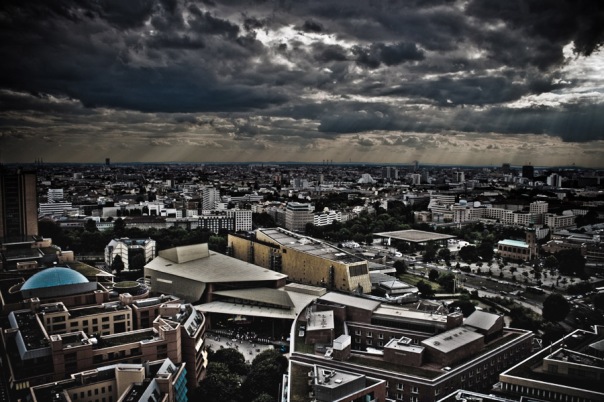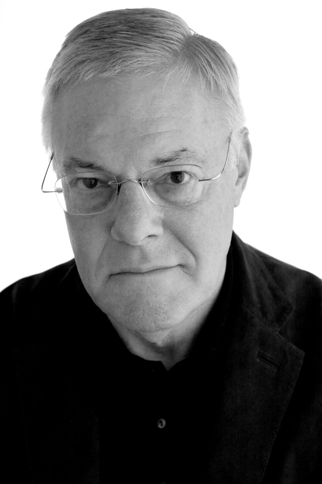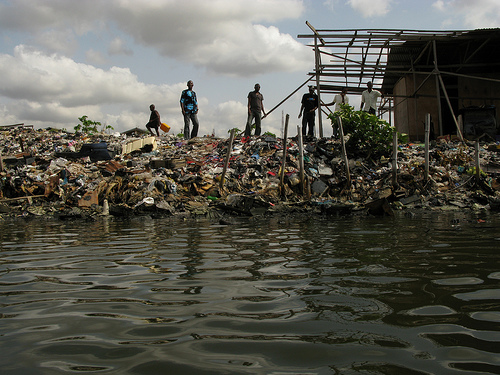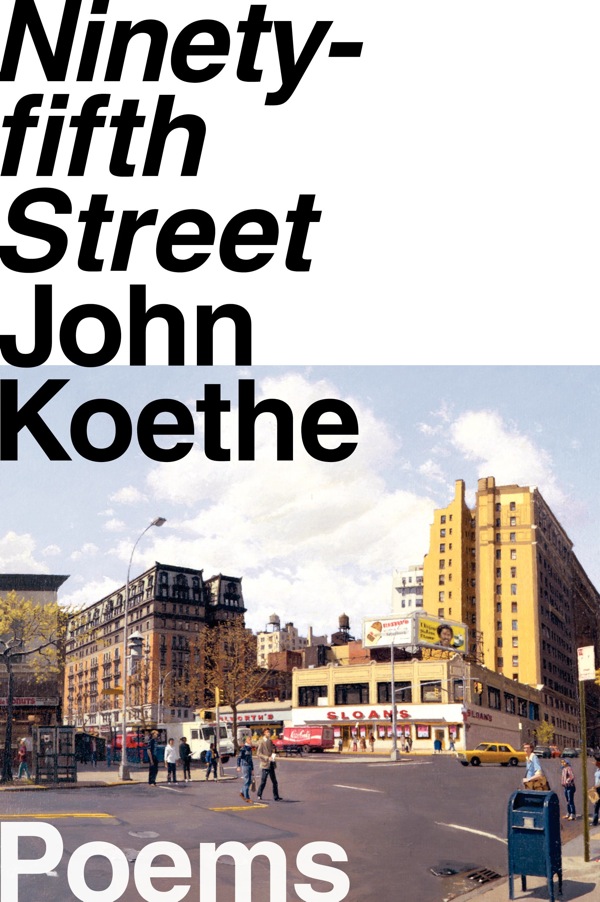A philosophy professor from Milwaukee named John Koethe writes the poetry of the built environment. Alongside themes of home, memory, time, and success as defined by our younger selves, Koethe focuses on place, taking us to Wisconsin’s Menomonee Valley, Los Angeles, and Berlin. Even the name of his most recent collection, Ninety-fifth Street, comes from the avenues we’ve built to navigate our man-made metropolises.
As he thinks about cities, and neighborhoods, some places are gone:
“I can only get there in a dream now / In a poem. The streets and alleys to the south of it / Are still a bit seamy, and the Beachcomber / Is still a dive smelling of beer and urine / But the real estate is simply worth too much / For any lingering seediness to last for long. The asphalt boardwalk that used to run along the beach / Is smooth concrete now, and the tattoo parlors / And magazine shops with boxes full of dirty pictures / Are all gone too, along with the shooting galleries / Where you could win a watch guaranteed to fall apart in a week.” [from “Belmont Park”]
Other places crop up in his memory even as he remembers others:
“1853 (it sounded like a year) First Avenue / The first house I remember we lived in as a family / Oh, there was the bungalow on Maxim Street we rented / While my father was in Korea, where I first discovered dreams / And before that one in Hollywood I can barely remember / A few blocks from Grauman’s Chinese Theater.” [from “The Lath House”]
He conjures up his past in gritty detail, using the physical character of the places he knew as a child as a way to talk about his life. From “Home”:
“It was a real place. There was a lawn to mow / And boxes in the garage. It was always summer / Or school, and even after so many years / It was always there, like the voice on the telephone / Each Sunday evening.”

The collection might wear itself out if it was only the poetry of an old man’s childhood. But he turns his unflinching eye to contemporary places as well, taking us to the “sawmills and steaming garbage dumps” of Lagos, the “maze of fences and barriers” near a train stop in Berlin. And for all the time spent in the past, he admits:
“I love the insulation of strange cities: / Living in your head, the routine of home / Becoming more and more romote / Alone, and floating through the streets / As through the sky, anonymous and languageless.” [from “Clouds”]
Interesting how the built environment is relied upon in abstract ways, such as his discussion of theories of the origin of life in “Creation Myths”:
“Some have the grandeur of architecture / The grandeur of the concert hall.”
And later:
“There was no place else / I especially wanted to go—no more exhibitions / Or architecture—and nothing I particularly wanted to do / … / And so I wandered through its massive doors / Into the afternoon and the museum of the future.”
But Koethe is at his best in the spaces between the big stuff, when he forgets he teaches philosophy and instead zooms in beyond the normal frame, bringing dust particles into focus, giving bone to blurry memories, and imaginative possibility to unthinkable places. My favorite micro-vignette is from “The Lath House.” He’s talking about the childhood home mentioned earlier:
“This one had green awnings in the front, a living room / With Venetian blinds, a backyard with a garden and a pepper tree / A small apartment over the garage, and behind all that / An unused lath house filled with dried-out dirt and vegetation / Where the sunlight filtered weakly through the slats / There was a shed with translucent windows of plexiglass / Attached to it in the back, with more decaying plants / Amid the spiders and the shadows. I hated going there / It wasn’t frightening so much as claustrophobic and unclear / Like something difficult to see, then harder to recall.”
And Lagos, in “This is Lagos”—vivid, mesmerizing:
“Instead of the usual welcoming sign to greet you / There’s the brute statement: This is Lagos. / If you make it to the island—if you make your way / Across the bridge and past the floating slums / And sawmills and the steaming garbage dumps, the auto yards / Still burning with spilled fuel and to your final destination / At the end of a long tracking shot, all of it on fire— / You come face-to-face with hell: the pandemonium / Of history’s ultimate bazaar, a breathing mass / Whose cells are stalls crammed full of spare parts / Chains, detergents, DVDs; where a continuous cacophony / Of yells and radios and motorcycles clogs the air.”
One of his most incredible poems in the book, though, is “The Menomonee Valley,” which you can read in its entirety here. The book as a whole is worth exploring. As you can see, it’s poetry with few tricks up its sleeve. It’s poetry for the everyday traveler, for anyone who’s ever looked around them.
::


